![]()
Jesus didn't leave his disciples on their own

Jesus didn't leave his disciples on their own
By Robert Creech
University Baptist Church-Clearlake, Houston
"How will Jesus' disciples survive in his absence?
That question troubled them as Jesus announced his imminent
departure. Their anxious glances and serious expressions conveyed the
emotional darkness engulfing them. Jesus countered that gloomy
atmosphere with his teaching. He left them with a legacy of
instruction that would enable them to live successfully as his
followers, even after his departure.
This legacy included teaching about prayer, obedience, peace,
experiencing the Father's love, abiding in Christ and living in
community with other believers. In addition, he taught them about
living in relationship with the Holy Spirit, who would continue to
provide an experience of Jesus' own presence with his friends.
He described the Spirit with three titles. In 14:26, Jesus simply
calls ... ”the Holy Sprit.” This title appears again in 20:22. Three
times in Jesus' final discourse he identifies ... as "The Spirit of
Truth" (14:17; 15:26; 16:13), a title that occurs outside the fourth
gospel only in 1 John 4:6. Four times Jesus uses the distinctive
title "parakletos" to describe the Spirit (14:16, 26; 15:26; 16:7).
This word also occurs elsewhere only in 1 John (2:1), where it refers
to Jesus.
"Parakletos," often printed in English as "Paraclete," challenges the
translator of John's gospel. Major translations render it
as "Comforter" (KJV)," Helper" (NASB)," Advocate" (NRSV)
and "Counselor" (NIV). The Greek word itself contains all those
meanings, describing one who is summoned to the aid of
another. ”Helper" may be the better translation, allowing the context
to describe the specific kind of help being offered (advocacy,
comfort or counsel). Some commentators do not translate the word at
all, simply bringing it into English as Paraclete, as we do with
other Greek words like "baptism" or "deacon.”
In many ways, the role of the Paraclete is to continue the ministry
of Jesus to his disciples. Jesus introduces the Spirit as"another"
Paraclete, implying he himself had been the first (14:16). As Jesus
is the Truth (14:6) and bears witness to the Truth (18:37), the
Paraclete is "the Spirit of Truth" (14:17) who testifies as well
(15:26-27). Just as Jesus is "the Holy One of God" (6:69), the Spirit
is "the Holy Spirit" (14:26).
Jesus has "come into the world" (5:43), and now promises the
Paraclete will come as well (16:8). The Spirit "comes forth" from the
Father (15:26), just as Jesus has come forth from the Father. The
Father gives the Paraclete at Jesus' request (14:16), just as the
Father has given his Son (3:16). The Father who sent Jesus (3:17)
will send the Spirit as well (14:26). Jesus came in the Father's name
(5:43) and the Paraclete comes in Jesus' name (14:26). As Jesus spoke
only what the Father told him (14:10), so the Spirit would reveal
Jesus' words (16:13). Jesus glorified the Father (14:13; 17:4), and
the Paraclete will glorify Jesus (16:14). In many ways, the Paraclete
is to Jesus as Jesus is to the Father.
The Paraclete will play a significant role in the lives of Jesus'
followers. They will be privileged to know the Paraclete, as they
have known Jesus (14:7, 9, 17). The Spirit will be within the
disciples and will remain with them, as Jesus remains in and with his
friends (14:20, 23; 15:4-5; 17:23, 26). The Spirit will guide the
disciples along the way of truth (16:13), even as Jesus is the Way
and the Truth (14:6). Jesus has taught those who would listen (6:59;
7:14, 18; 8:20), and now the Paraclete will do the teaching (16:12-
15). The Spirit will empower disciples to testify to Jesus (15:26-27;
20:21-23).
The Spirit also has an important role to play in relation to the
world. The world that did not accept Jesus will not accept the
Paraclete (5:43; 12:48; 14:17). The world that did not recognize
Jesus (7:28; 8:14, 19; 14:7; 16:3) will not recognize his Spirit
either (14:17). Like Jesus, the Paraclete will bear witness in the
context of the world's hatred (7:7; 15:26-27). And the Paraclete
ultimately proves the world wrong concerning its verdict on Jesus
(16:8-11). Jesus' "Advocate" will become the prosecuting attorney
bringing the world to trial before the bar of Truth.
Living as Jesus' disciple while he was on earth required knowing him,
loving him, trusting him, obeying him and learning from him. We now
experience his presence with us through knowing, loving, trusting,
obeying, and learning from the Paraclete, the Spirit of Truth.
Jesus describes the Paraclete almost entirely in functional terms. He
tells us what the Spirit will do with and for us...; is God's presence
among us (14:16-17)...; is our personal teacher (14:26; 15:13)...; brings
thing to our minds and helps us understand them (14:26)...; is the
source of our peace (14:27)...; empowers our ministry and witness
(15:26-27)...; comes to us in our sorrow (16:5-7)...; convicts the world
of sin (16:8-11)...; focuses our attention on Jesus, glorifying him
(16:13-14)...; makes spiritual truth clear to us (16:13-15).”
Robert Creech
University Baptist Church-Clearlake, Houston, Texas, USA
December 16, 2002
Apokalypsis: The fulfillment of eschatological instruction by the Paraclete in the Age to Come promised by Jesus at the Last Supper
An apocalypse (Greek: apokalypsis meaning “an uncovering”) is in religious contexts knowledge or revelation, a disclosure of something hidden, “a vision of heavenly secrets that can make sense of earthly realities.” (Ehrman 2014, 59)
“An apocalypse (Ancient Greek: apokalypsis ... literally meaning "an uncovering") is a disclosure or revelation of great knowledge. In religious and occult concepts, an apocalypse usually discloses something very important that was hidden or provides what Bart Ehrman has termed, "A vision of heavenly secrets that can make sense of earthly realities". Historically, the term has a heavy religious connotation as commonly seen in the prophetic revelations of eschatology obtained through dreams or spiritual visions.” Wikipedia 2021-01-09
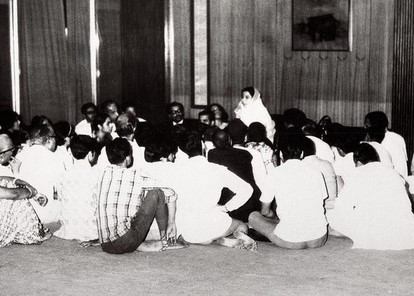
Total number of recorded talks 3058: Public Programs 1178, Pujas 651, and other (private conversations) 1249
“The Paraclete will come (15:26; 16:7, 8, 13) as Jesus has come into the world (5:43; 16:28; 18:37)... The Paraclete will take the things of Christ (the things that are mine, ek tou emou) and declare them (16:14-15). Bishop Fison describes the humility of the Spirit, 'The true Holy Spirit of God does not advertise Herself: She effaces Herself and advertises Jesus.' ...
It is by the outgoing activity of the Spirit that the divine life communicates itself in and to the creation. The Spirit is God-in-relations. The Paraclete is the divine self-expression which will be and abide with you, and be in you (14:16-17). The Spirit's work is described in terms of utterance: teach you, didasko (14:26), remind you, hypomimnesko (14:26), testify, martyro (15:26), prove wrong, elencho (16:8), guide into truth, hodego (16:13), speak, laleo (16:13, twice), declare, anangello (16:13, 14, 15). The johannine terms describe verbal actions which intend a response in others who will receive (lambano), see (theoreo), or know (ginosko) the Spirit. Such speech-terms link the Spirit with the divine Word. The Spirit's initiatives imply God's personal engagement with humanity. The Spirit comes to be with others; the teaching Spirit implies a community of learners; forgetful persons need a prompter to remind them; one testifies expecting heed to be paid; one speaks and declares in order to be heard. The articulate Spirit is the correlative of the listening, Spirit-informed community.
The final Paraclete passage closes with a threefold repetition of the verb she will declare (anangello), 16:13-15. The Spirit will declare the things that are to come (v.13), and she will declare what is Christ's (vv. 14, 15). The things of Christ are a message that must be heralded...
The intention of the Spirit of truth is the restoration of an alienated, deceived humanity... The teaching role of the Paraclete tends to be remembered as a major emphasis of the Farewell Discourses, yet only 14:26 says She will teach you all things. (Teaching is, however, implied when 16:13-15 says that the Spirit will guide you into all truth, and will speak and declare.) Franz Mussner remarks that the word used in 14:26, didaskein, "means literally 'teach, instruct,' but in John it nearly always means to reveal.” (Stevick 2011, 292-7)
The Holy Spirit as feminine: Early Christian testimonies and their interpretation,
Johannes van Oort, Radboud University, Nijmegen, The Netherlands
Department of Church History and Church Polity, Faculty of Theology, University of Pretoria, South Africa
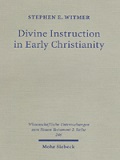
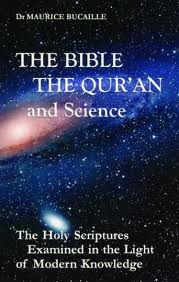
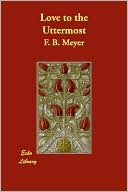
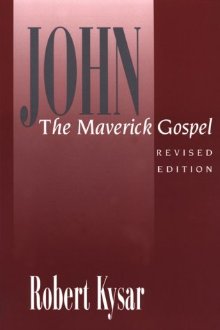
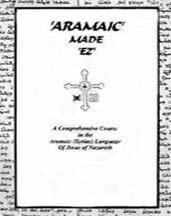

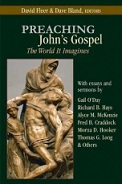
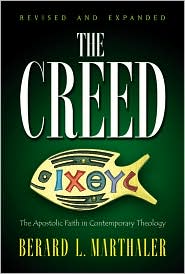
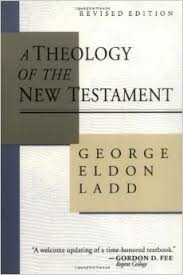
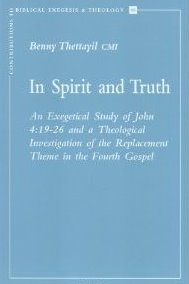

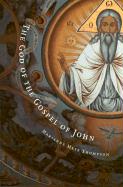
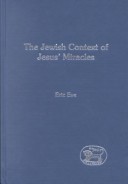
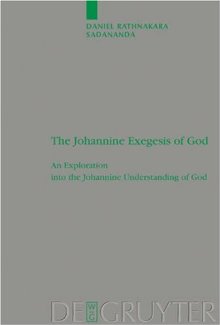

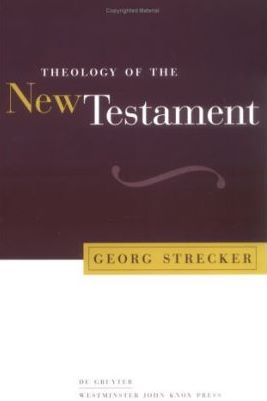
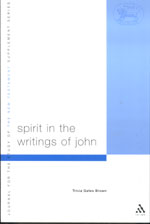
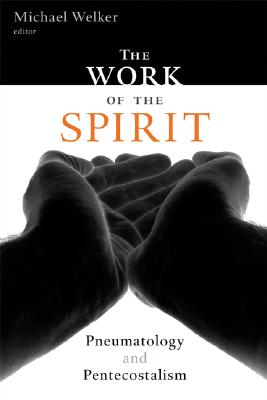
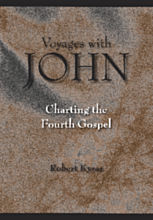
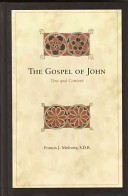
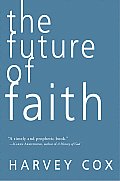
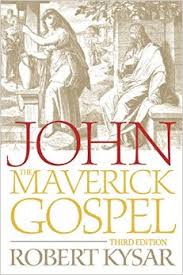
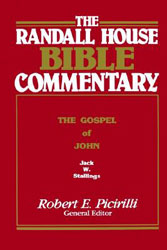
 “The teaching of the Paraclete, as the continuation of Jesus' teaching, must also be understood as the fulfillment of the promise of eschatological divine instruction.”
“The teaching of the Paraclete, as the continuation of Jesus' teaching, must also be understood as the fulfillment of the promise of eschatological divine instruction.”Stephen E. Witmer, Divine instruction in Early Christianity
“Jesus therefore predicts that God will later send a human being to Earth to take up the role defined by John .i.e. to be a prophet who hears God's words and repeats his message to man.”
M. Bucaille, The Bible, the Qur'n, and Science
“And when Jesus foreannounced another Comforter, He must have intended a Person as distinct and helpful as He had been.”
F. B. Meyer, Love to the Utmost
“The Paraclete has a twofold function: to communicate Christ to believers and, to put the world on trial.”
Robert Kysar, John The Meverick Gospel
“But She—the Spirit, the Paraclete...—will teach you everything.”
Danny Mahar, Aramaic Made EZ)
“Grammatical nonsense but evidence of the theological desire to defeminize the Divine.”
Lucy Reid, She Changes Everything
“The functions of the Paraclete spelled out in verses 13-15... are all acts of open and bold speaking in the highest degree.”
David Fleer, Preaching John's Gospel
“The reaction of the world to the Paraclete will be much the same as the world's reaction was to Jesus.”
Berard L. Marthaler, The Creed: The Apostolic Faith in Contemporary Theology
Bultmann calls the “coming of the Redeemer an 'eschatological event,' 'the turning-point of the ages.”
G. Ladd, A Theology of the New Testament
“The Paraclete equated with the Holy Spirit, is the only mediator of the word of the exalted Christ.”
Benny Thettayil, In Spirit and Truth
“The divine Paraclete, and no lessor agency, must show the world how wrong it was about him who was in the right.”
Daniel B. Stevick , Jesus and His Own: A Commentary on John 13-17
Stephen Smalley asserts that “The Spirit-Paraclete ... in John's Gospel is understood as personal, indeed, as a person.”
Marianne Thompson, The God of the Gospel of John
“The Messiah will come and the great age of salvation will dawn (for the pious).”
Eric Eve, The Jewish context of Jesus' Miracles
“The remembrance is to relive and re-enact the Christ event, to bring about new eschatological decision in time and space.”
Daniel Rathnakara Sadananda, The Johannine Exegesis of God
“The Spirit acts in such an international situation as the revealer of 'judgment' on the powers that rule the world.”
Michael Welker, God the Spirit
The Paraclete's “Appearance means that sin, righteousness, and judgment will be revealed.”
Georg Strecker, Theology of the New Testament
“While the Spirit-Paraclete is the true broker, the brokers they rely on are impostors.”
T. G. Brown, Spirit in the writings of John
“The pneumatological activity ... of the Paraclete ... may most helpfully be considered in terms of the salvific working of the hidden Spirit.”
Michael Welker, The work of the Spirit
“The pneuma is the peculiar power by which the word becomes the words of eternal life.”
Robert Kysar, Voyages with John
“The gift of peace, therefore, is intimately associated with the gift of the Spirit-Paraclete.”
Francis J. Moloney, The Gospel of John
“This utopian hope, even when modestly expressed, links Jesus and the prophets to a much wider history of human longing.”
Harvey Cox, The Future of Faith
“Because of the presence of the Paraclete in the life of the believer, the blessings of the end-times—the eschaton—are already present.”
Robert Kysar, John
“They are going, by the Holy Spirit's power, to be part of the greatest miracle of all, bringing men to salvation.”
R. Picirilli, The Randall House Bible Commentary
“The Kingdom of God stands as a comprehensive term for all that the messianic salvation included... is something to be sought here and now (Mt. 6:33) and to be received as children receive a gift (Mk. 10:15 = Lk. 18:16-17).”
G. Ladd, A Theology of the New Testament
Disclaimer: Our material may be copied, printed and distributed by referring to this site. This site also contains copyrighted material the use of which has not always been specifically authorized by the copyright owner. We are making such material available to our readers under the education and research provisions of "fair use" in an effort to advance freedom of inquiry for a better understanding of religious, spiritual and inter-faith issues. The material on this site is distributed without profit. If you wish to use copyrighted material for purposes other than “fair use” you must request permission from the copyright owner.